
Abstract: This article traces the evolution of MoonPads, a social benefit company founded by the author, weaving a narrative that spans personal experiences, academic pursuits, and a commitment to sustainability, social equity, and menstrual justice. The article explores the interconnected journey from childhood influences, through academic endeavors in sustainability education, to the entrepreneurial realm, shedding light on the intersection of gender equity and environmental sustainability. MoonPads emerged as a response to period poverty, seeking to provide accessible and eco-friendly menstrual products while challenging societal stigmas surrounding menstruation.
Continue Reading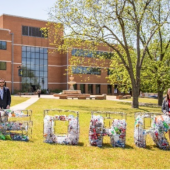
Abstract: Southern Arkansas University has developed the SOAR Sustainability Conference to spotlight current sustainability-related efforts. SOAR, representing the southern Arkansas region, was added to the conference name to signify the area of emphasis for the event. This spring conference event has been held in April of 2022 and 2023. The 2023 conference included over 50 presenters from academia, private businesses, government agencies, and volunteer organizations. Session topics were aligned with the critical components of sustainability education including anticipatory thinking, empathy, change of perspective, justice, responsibility, and ethics. Surveys were distributed to SOAR conference attendees to gauge their level of attitudes, knowledge, and behavior regarding sustainability issues. Responses were very positive overall, showing gains in attendees’ attitudes, knowledge, and behavior between 2022 and 2023. The behavior category showed the largest annual increase while knowledge gains over the same period were lower. Overall, the SOAR Sustainability Conference has shown success in engaging students and community stakeholders to take part in this effort to address sustainability-related challenges in the area.
Continue Reading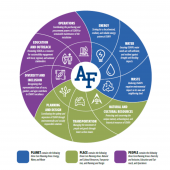
ABSTRACT: In this paper we offer an approach to sustainability-related education that can help students integrate the lessons they are learning in the classrooms to the type of real-world applications they will encounter in the workplace. We believe that by using our campus as a living-learning laboratory and engaging students in hands-on projects within a campus lab that directly contribute to one of their institution’s leading sustainability initiatives, we can unlock the highest levels of educational achievement and student satisfaction. We describe our course as intentionally designed because we have developed it with a specific purpose that goes beyond the stated learning objectives. Our course not only addresses recognized institutional and course-level educational outcomes, but also uses a community engagement approach that also directly supports important aspects of an enterprise-wide Sustainability Strategic Plan. We present relevant literature, highlight the significance of our approach to sustainability education, and describe its impact at our institution and in the community. We then offer detailed descriptions of our course’s activities, discuss lessons-learned and suggest future potential avenues of research and application. We hope this case study may prove to be an exemplar or a catalyst for other institutions of higher education as well as inspire further research aimed at improving sustainability education.
Continue Reading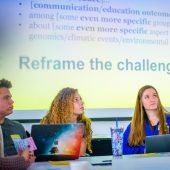
Abstract: While the majority of today’s youth accept climate change as a factual phenomenon, many educators and their curricula lag behind with a continued emphasis on confronting climate skepticism and denial. This article highlights our experience teaching a course, Climate Change and Sustainability, in which we encountered disruptive objections to our lessons from students who believe climate change is happening and desperately want action. However, the all-or-nothing stance of these students stifled conversation, and their lack of engagement with various topics kept them uninformed. To address these issues, we recommend structuring classroom debate around consensus-building activities to practice solution-oriented communication.
Continue ReadingAbstract: Actualization of the 17 sustainable development goals (SDGs) conceived by the United Nations in 2015 is a global challenge that may not be feasible in sub-Saharan Africa by the year 2030, except higher education play a committed role. There is need for higher education to embrace partnership and train people on the concepts of sustainability and sustainable development in the region. This paper presents a model center with curricular framework and partnership structure for the training. The Model Center for Sustainability Studies (MCSS) will enable partnerships with institutions in Africa and in advanced nations, thereby creating a global network for sustainability studies not found in sub-Saharan Africa. MCSS will train and certify public servants, government agencies, policymakers, entrepreneurs and personnel from organizations and students on aspects of the SDGs and sustainability science. It is important to add sustainability into environmental education and make environmental education a compulsory course in higher institutions and a secondary school certificate exam subject in sub-Saharan Africa. MCSS has 11 training modules that can be replicated anywhere in the world. Higher institutions in sub-Saharan Africa should follow this training perspective, to achieved SDGs, predicted 2040 against 2030.
Continue Reading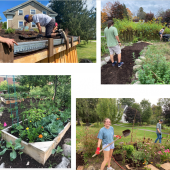
Abstract: This case-study supports the implementation and social investment in university campus community gardens as an interdisciplinary resource for academic research, extra-curricular activities, and community building. Using a permaculture design model, the St. Lawrence University community permaculture garden in Canton, New York State exists to enhance the diverse academic curriculum and varied community engagement opportunities to provide experiential and interdisciplinary learning opportunities for students, faculty, staff, and remaining stakeholders. This case-study will focus on one of St. Lawrence University’s student-led clubs, its operations, history, and challenges (e.g., participant transience). Our findings suggest that campus permaculture gardens require adequate investment, including financial and academic support. The development of a conceptual seasonal and academic community calendar provides a fundamental framework for operations and governance. The sheer number of opportunities and broad capacity of the club and the presence of physical student space brings meaningful accessibility and community engagement. Over time, the club and garden has remained resilient due to a holistic approach which keeps the bigger picture in mind. Each year the club faces a variety of challenges and obstacles, yet such experiences have provided opportunity for adaptation and evolution. Recommendations can be used to support a replicable model for other educational environments and communities in both urban and rural areas, interested in developing a permaculture garden as a resource that improves social cohesion during a time of ecological fatigue, social unrest, the COVID-19 pandemic, and climate change.
Continue Reading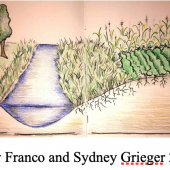
Abstract: This study examined how placemaking curricula shaped teacher candidate (candidate) knowledge, dispositions, and skills to understand, appreciate, and sustain local diversity, as evidenced through candidate reflections and products created in an elementary teacher education course integrating civic science concepts and practices into elementary classrooms. This study explored how placemaking curricula engaged community stakeholders in meaningful shared inquiry on real-world challenges, while meeting state science education standards. Placemaking inquiry projects developed by candidates focused on soil and water conservation, and sustaining diversity in schoolyard spaces. Curricula engaged candidates in learning soil and water conservation techniques from local farmers and conservation leaders, then developing and sharing co-authored civic science children’s books on conservation topics aligned to grade-level standards. As further placemaking curricula, candidates partnered with elementary teachers and students to guide schoolyard observations, designs, and models constructed to sustain diverse abilities, cultures, and ecologies. Presentations to parents and peers celebrated shared insights.
Continue Reading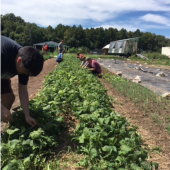
Abstract: This research explores the role that place attachment and place meaning towards an urban farm play in predicting undergraduate students’ civic-mindedness, an important factor in sustainability and social change. In 2017 and 2018, three STEM courses at a private university in the Midwest incorporated a local urban farm as a physical and conceptual context for teaching course content and sustainability concepts. Each course included a four to six-week long place-based experiential learning (PBEL) module aimed at enhancing undergraduate STEM student learning outcomes, particularly place attachment, situated sustainability meaning-making (SSMM), and civic-mindedness. End-of-course place attachment, SSMM, and civic-mindedness survey data were collected from students involved in these courses and combined with institutionally provided demographic information. Place attachment and SSMM surveys, along with the course in which the students participated, were statistically significant predictors of students’ civic-mindedness score.
Continue Reading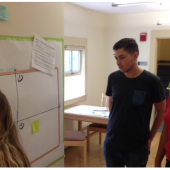
Abstract: Sustainability education can productively focus on concepts and/or skills, each playing an important role in preparing students to promote sustainability in society. We describe here the skills-based curriculum in an environmental sustainability practicum designed for undergraduate students. Although our curriculum provides training in numerous relevant skills, we focus here on one in particular: scenario planning. Originally developed in the 1970s by Shell Oil to develop robust business strategies in the face of future uncertainties, scenario planning is applicable to any planning domain where future conditions may be driven by the outcome of critical unknowns. For example, planning for effective community resilience in the face of climate change may depend on the degree of government support for renewable energy systems. In this practicum, students work in teams of 3-4 on the same challenge: Assess a specified human-natural system for its vulnerability to climate change in the next 20 years and develop solutions that effectively increase the resilience of the system in the face of uncertainty.
Scenario planning involves six steps: (1) Identify driving forces for future changes; (2 and 3) Identify certainties and uncertainties for future conditions; (4) Rank uncertainties by the degree to which they might affect future conditions; (5) Create a 2×2 grid of possible future scenarios based on the two most influential uncertainties; and (6) Describe the future world in each of these four scenarios. Using creative ideation techniques developed by IDEO for their Human-Centered Design methodology, students then use these four scenarios as the basis for envisioning effective strategies for promoting resilience regardless of how the critical uncertainties unfold (adaptive planning) or for influencing uncertainties to increase the probability that preferred scenarios manifest.

Abstract: After 20 plus years as a sustainability educator, the author had one of those lie-awake-at-night-staring-at-the-ceiling experiences where she faced some hard questions about the state of the world. In this article, describes her subsequent journey investigating the role of listening in shifting to a life-sustaining society and her Ph.D. research into how to support listening across differences to address complex social-ecological challenges.
Continue Reading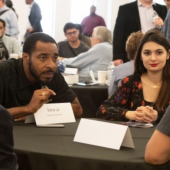
Abstract: A course in sustainability was implemented at the University of Houston-Downtown (UHD). The course was open to all students at UHD with a goal of teaching sustainability as the complex interaction of multiple fields (economics, social science and environmental science). UHD’s Center for Public Deliberation (CPD) was interested in applying the concepts of public deliberation into courses outside of communication. For effective public deliberation, students need to learn the skills of soliciting and incorporating diverse opinions as a pre-requisite of working together toward a solution. Many students attracted to sustainability, including science and technology majors, do not realize that most problems of sustainability are not merely technical problems but problems that arise from conflicting ethical frameworks. Students outside of public deliberation rarely have an opportunity to practice engaging in the tools that will be critical for them to develop solutions within the complexity of current social systems. We review the value of public deliberation in higher education and the logistics of bringing public deliberation into a sustainability course. We summarize the logistics of the collaboration with a focus on deliberation, planning and action in a semester-long group projects with a focus on creating healthier communities. We report on the impacts of both the communication and science faculty and the survey data from students. Finally, we discuss the value of such a collaboration in sustainability education.
Continue Reading
Abstract: While passionate, project-based, and place-based education may sound like a stream of buzz-phrases or fads in education at face-value, this article uncovers their impact on student engagement and academic proficiency. While they are not textbook, traditional, pedagogical approaches, they are esteemed in the field of Education as undeniably effective and worth teachers’ consideration. This article discusses the impactful aspects of a.) passionate teaching, b.) project-based learning (PBL), and c.) place-based education (PBE). A former fifth-grade teacher’s experience in creating and implementing a curriculum titled, “Farm-to-Table,” contextualizes the power of passionate teaching, PBL, and PBE when used simultaneously. The article concludes with special considerations for other teachers that warrant attention before they start planning their own passionate, PBL, and PBE curriculum.
Continue Reading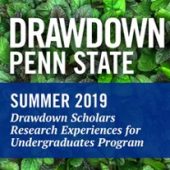
Abstract: Podcasts are increasing in popularity as an educational tool in recent years, but there remains a lack of podcasts that focus on climate change. The goal of this project was to create a series of audio files that address global warming solutions in the state of Pennsylvania, with each episode based upon a drawdown solution. Project Drawdown is a nonprofit organization that models how to reach “drawdown”— the future point in time when levels of greenhouse gases in the atmosphere stop climbing and start to steadily decline. This audio collection contains new and original podcasts addressing each Project Drawdown sector of global warming solutions, such as materials and waste, electricity generation, and land use. To highlight efforts in Pennsylvania, thirteen interviews were conducted with scientists, journalists, and professionals from organizations across the state, such as Feeding Pennsylvania, Southeastern Pennsylvania Transportation Authority (SEPTA), Philadelphia Green Roofs, StateImpact Pennsylvania, and Land Air Water Legal Solutions. Named Drawing Down in Pennsylvania, the podcast collection starts with an introductory episode, then eight episodes each corresponding with one of the Project Drawdown sectors, and wraps up with two additional episodes – one titled “Hope” with messages of optimism towards achieving warming solutions from the interviewees, and a special episode that focuses on The Pennsylvania State University and its efforts toward to drawdown. The audio collection is published online, together with corresponding transcripts and supplemental materials. It is hoped that these podcasts will help inform Pennsylvania residents to make choices and to take action for a sustainable future. For residents outside of Pennsylvania, these drawdown efforts can be applied to different populations and regions. The entire podcast series can be accessed at: https://sites.psu.edu/drawingdownpa/ and is suitable for middle school through college classrooms as well as general audiences.
Continue Reading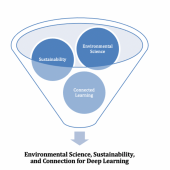
This comparative case study of teaching and learning experience explores connected learning design principles to improve engagement in higher education and weave sustainability practice into introductory environmental science curriculum through the integration of community, place, peer support, networking, and technology. For this study teaching and learning took place in multiple settings, online and in a brick-and-mortar classroom, and in students’ communities. We set out to ask: In what ways might the implementation of connected learning principles be used to improve engagement and weave sustainability into environmental science curriculum, broaden interest in science literacy, and encourage community action in introductory higher education courses? Comparative analysis and collaborative autoethnography methodologies were utilized to compare professor experiences for analysis and synthesis of patterns. Findings suggest that connected learning curriculum can broaden access to science, improve engagement, and help weave sustainability into a variety of courses by presenting students with relevant applied opportunities, connections and critical thinking about place and community, peer support and intergenerational connections, networking, and technology. Students can also gain a sense of agency and career relevance especially important to students who might otherwise feel they cannot “do science” or make a difference in a changing world. Lastly, this approach can improve instructors’ teaching experiences by relieving time and content constraints to incorporating sustainability into other course subjects as students submit more interesting passion-driven work, and are encouraged to network with and learn from individuals (family, community, and scientists) outside the classroom they may not have otherwise sought out.
Continue ReadingAbstract: The field of media education, emerging within the instrumental vision of modernity, has largely ignored its unspoken modernist assumptions. In this article, we argue the time has come to fully engage an embodied view of media from an evolutionary, ecological perspective—what we might call ecological modernism. This is a perspective that views media as evolving mediations through various material/technical practices, where body knowledge, rather than some idea of objective reality, is understood as the empirical ground for how we come to make sense of ourselves and the world. The focus is then shifted from the problem of subject versus object relationships to how subjects and objects are mutually constitutive. By extension, the juxtaposition of the concept of citizen with the body clarifies yet another crucial dimension of the embodied perspective. Two examples of “citizen”-based media education projects are briefly reviewed from this ecological modernist perspective in order to consider the implications of resituating grounded citizen-oriented media education.
Continue Reading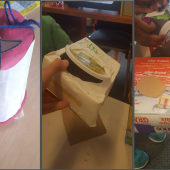
Abstract: This case study illustrates a cross-curricular learning experience, anchored in standards, where teachers and students actively engaged in co-constructed, inquiry-based learning and design thinking. The particular question this case study addressed was “How might students connect with environmental citizenship in authentic ways through media literacy experiences?” Specifically, the case study invited primary level learners to engage in a multimodal experience that was anchored in media literacy concepts and process. A pedagogical approach rooted in media literacy theory subsequently empowered students to make positive environmental changes in their communities and develop citizenship skills for the future. The project sought to develop awareness of sustainability through analysis, re-design, and production of snack food packaging. Educator reflections offer ideas for project improvement, such as producing for a wider audience, offering more choice, and making broader subject connections. This case study has implications for practice by demonstrating that, through various stages of scaffolding and integrated lesson design, young children are capable of applying sophisticated media literacy theory, inquiry, and design thinking to meet multiple curriculum standards.
Continue ReadingI propose in this essay that a key to rebalancing life systems now being harmed by human activity requires a return to the priority of “truthfulness” as practiced by traditional Indigenous cultures for whom words are sacred vibrations of energy, requiring close attention to how one describes reality as truthfully and holistically as possible. This contrasts with the use of deceptive language common today. Furthermore, because words have the power to hypnotize self and others, awareness of trance-based learning is vital for helping assure one’s beliefs are not based on untruthful sources. I assert that there is no better way to explain how intelligent people can destroy or allow for the destruction of ecosystems without referring to unconscious acceptance of misguided hypnotic directives. Uncritical hypersuggestibility relates to the rise of fear-based living, authoritarianism and deceptive hypntoic language that has been cultivated under the dominant worldview. A solution is to return to awareness and intentional use of trance-based learning for maintaining or re-establishing healthy, reality-based ways of being in the world such as humans did well for most of human history.
Continue ReadingAs schools provide students with choice, support the development of critical thinking skills and promote project-based learning, incorporating a focus on sustainability is a natural progression of the learning process. In 2012, the US Department of Education (DoE) developed a federal outreach initiative entitled Green Ribbon Schools (GRS) that promotes sustainability, healthy living, and collaborative efforts. The catalyst behind this initiative was a group of non-profit organizations, including the Center for Green Schools at the U.S. Green Building Council (USGBC). This research focuses on case studies of K-6 schools that have been awarded the Green Ribbon School designation and how these schools build a foundation for adopting and continuing sustainable principles. Specific K-6 schools were identified and teachers and administrators from those schools were interviewed as to how they incorporated the three pillars of green ribbon schools (reducing environmental impact, improving health and wellness and offering effective environmental and sustainability education) into their existing curriculum and physical structure. Nine thematic categories were found to be the driving factors that supported the GRS success in their sustainable policies. The themes from this research help to articulate the conditions needed to create and advance sustainability initiatives.
Continue Reading
While sustainability is often perceived from a framework of fear, emergent understandings of sustainability are rooted in pedagogies of hope. In particular, radical hope, or critical-transformative hope, is transforming sustainability. Radical hope is contextually dependent and is made meaningful when in action. Collective movements such as the buen vivir social movements and transition movements are realizations of radical hope in praxis. Overall, this paper aims to demonstrate that through a multiplicity of movements, sustainability is in the process of continual becoming.
Continue Reading
Abstract: A United Nations international collaboration between the Education for Sustainable Development (ESD) and the Principles for Responsible Management Education (PRME) resulted in the creation of Sulitest® (aka Sustainability Literacy Test) an open, online training and assessment tool freely available to higher education institutions globally. This study analyzes the effectiveness of the newly developed Sulitest® to not only measure sustainability literacy of higher education student populations, but also act as a catalyst for boosting affective learning outcomes by: (a) generating interest in sustainability-related issues, (b) improving sustainability-related understandings, and (c) enhancing students’ interests in the subject matter. In order to do so we present a two-phase, exploratory mixed-method pilot study. Preliminary results from this pilot study reveal Sulitest is a useful tool for not only assessing sustainability literacy but also spurring student interests and motivations in sustainability-related subject matters. Findings, discussion and limitations are provided.
Continue Reading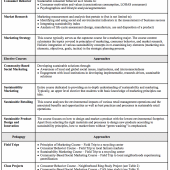
Abstract: As noted by a growing number of marketing scholars, the importance of educating marketing students on sustainability should be an important objective for marketing educators and business schools alike. The focus of sustainability-based marketing education is on the greater good of the environment and society, while adjusting internal and related external processes to sustainability principles. In this conceptual paper, we adopt a broadened definition of sustainability distinct from the narrow understanding of Corporate Social Responsibility (CSR) adopted by the business world in general and make recommendations for using this broadened definition to reframe marketing curricula and pedagogy. We give specific examples of assignments and pedagogical approaches for four core marketing courses as well as four marketing electives. By doing so, we hope to foster a new marketing mindset and a new generation of marketing practitioners who embrace, internalize, and practice sustainability holistically.
Continue Reading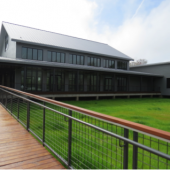
An Urban Nature Center: Take 2. My Journey to Sustainability Education in Rebuilding a Nature Center
Continue Reading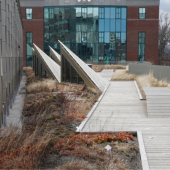
Abstract: Higher education campuses play an important role in developing visionary models of sustainability that integrate campus facilities, student learning, and research. We reflect on a series of visits to campuses within New York state utilizing systems thinking analysis of sustainable initiatives finding interconnections between buildings, pedagogy, and campus life. Campus infrastructure-systems, curriculum, and campus actors present agentic interconnections that contribute to teaching the campus community about sustainable systems. Our journey presents three big ideas for conceptualizing our encounters: wayfinding, defining occupancy, and implementing a vision that articulate how campus spaces and green infrastructures exert agency in teaching us about sustainable living. These big ideas are explored to conceptualize and reflect on our role as art and design faculty to use our workplace and hence campus life as a context within which to speculate on sustainable living.
Continue Reading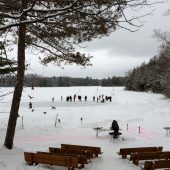
Abstract: In this article, we examine the collaborative efforts of university-employed folklorists with Waaswaaganing Anishinaabe (Lac du Flambeau Ojibwe) teachers and community leaders in what is currently known as northern Wisconsin. Focusing on the Ojibwe Winter Games—an annual weeklong event in February for middle school students that aims to revitalize traditional competitive games—we suggest that decolonizing sustainability education requires recognition that sustainability is pluralistic and culturally specific. Educators must facilitate a restorative systemic shift towards Indigenous sustainabilities through Indigenous-centered pedagogies and methods of knowledge production. In order to accomplish such a shift, our responsibility as academics and public folklorists must always be to the Indigenous communities with whom we work. We explore the role of non-Indigenous collaborators in Indigenous-led decolonization efforts, in developing educational systems that support and sustain Indigenous knowledge systems, and in the repatriation and rematriation of land, language, and culture.
Continue Reading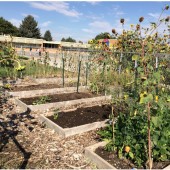
This essay describes a project in which a 4th grade class joined forces with a university class to study and produce as theatre Paul Fleischman’s Seedfolks, an inspiring story of a diverse group of community residents who transform a vacant urban lot into a wonderful community garden. In addition to the arts component, the two teachers unexpectedly found an opportunity to encourage sustainability of education when their students embarked on a pen pal correspondence.
Continue Reading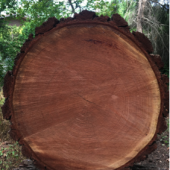
The purpose of this policy study is to provide to educators and curriculum writers a critical account of the diversity and contestability of the conceptions of sustainability embedded into the policies and processes related to the transformation of K-12 curriculum in British Columbia (B.C.), Canada. First, we examine the different conceptions of sustainability within the context of distinctive socio-cultural paradigms: the industrial, the existentialist, and the symbio-synergetic. Second, we address the following key questions: in what socio-cultural paradigm is the dominant conception of sustainability grounded in new K-12 curriculum policy in B.C. and in which ways does that paradigm question the dominant industrial notion of modernity and development?
Continue Reading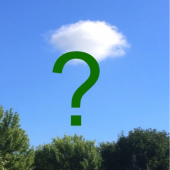
Increased understanding amongst scientists and the general public about anthropogenic impacts in general, and climate change in particular, behooves us as educators to adjust our courses and curricula. “Sustainability” and “green” topics are increasingly being discussed and incorporated, but this should be done with deliberation. We undertook this study to understand attitudes, perceptions, and habits of the student body at Iowa State University, with a focus on environmental knowledge and behaviors. Overall, we found that, regardless of demographic, students appear to be interested in environmental topics, reducing their footprint, and improving the environment overall. But, they did not necessarily want to pay more, nor did they fully embrace personal responsibility.
Continue ReadingABSTRACT: Sustainability and sustainable development have become one of the dominant topics of discussion among individuals, institutions, companies and universities in response to any global issues with regard to climate change. Many universities including Universiti Sains Malaysia (USM) have taken the initiative to instil sustainability element in its programme offered to its prospective student. USM aims to pioneer in sustainability area and become the reference point with regard to sustainability in Malaysia. In this paper, we provide the background of our USM and its goals towards becoming the sustainability-led university in Malaysia. We also introduce the tool that we have developed to help in calculating the percentage of sustainability content in any document. We utilize the tool to help us in investigating whether sustainability element is fully instilled in Mathematics programme offered in School of Mathematics in USM. We also provide our recommendation and future works to further strengthen this study in the future.
Continue Reading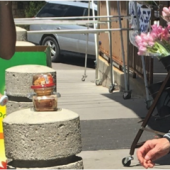
Abstract: Five years after the City of Aspen Waste Ordinance went into effect, this study examines its effectiveness and current shopper behavior. The ordinance banned single use plastic bags from supermarkets and placed a $0.20 fee on single use paper bags. The policy was supported by outreach measures such as distributing reusable bags and education. Results show that single use paper bag sales per $100 of supermarket revenue ranged from a low of 0.59 bags/$100 revenue in 2012 to high of 0.78 bags/$100 revenue in 2014. This rate remained relatively constant between 2014-2016. These low values, combined with the observation that only 15% of shoppers leaving supermarkets were observed using single use bags, indicates that a substantial number of customers choose reusable bags or no bags at all. In contrast, observations made at a nearby supermarket with no bag policy in place indicated that 77% of shoppers left with single use bags. Surveys and interviews indicated that while some people initially opposed Aspen’s bag policy, the community has now generally adapted to and accepted it. These results suggest a level of success in using a policy lever, such as Aspen’s Waste Reduction Ordinance, to advance sustainable behavior.
Continue Reading
Abstract: The study was a descriptive and correlational quantitative study of U. S. Department of Education Green Ribbon Schools (ED-GRS) teachers’ perceptions of ecological and democratic principles in their schools. Descriptive statistics described the ED-GRS teachers’ perceptions of how the ecological and democratic principles operate in their schools. Correlations were used to look deeper at the ecological and democratic principles and to what extent these principles were related. Teachers in ED-GRS award winning schools reported evidence of ecological and democratic principles. The findings suggested that ecological and democratic principles had a positive relationship among them. In addition, there were seven principles that had strong, positive relationships among each other as perceived by teachers in ED-GRS award winning schools. I concluded from the data that sustaining ecological change requires evidence of democratic leadership and community. This study contributes to the field of educational leadership by providing a descriptive analysis of a newly-created United States Department of Education award. In addition, this study provides schools and school leaders with information as how to make sustainable changes that lead to healthy, high performance schools including a theoretical framework to provide guidance in making the sustainable changes.
Continue Reading
Abstract: Healing a world on the brink of eco-social collapse requires an understanding of how planetary health has declined, how sustainable societies worked before, and how we can restore them. Global colonizing processes established a worldview of economic domination and competition that has had detrimental impacts upon our social and environmental systems. Archeological and mathematical studies of the rise and fall of human civilizations concluded that egalitarian societies with low environmental exploitation were the longest lasting in human history, and that high economic stratification, and/or overexploitation of resources were precursors to societal collapse. Indigenous community systems were relatively egalitarian and environmentally sustainable. Hypothetically, if we use Indigenous eco-social systems as a guide for community planning, then eco-social collapse can be averted, and eco-social resilience and sustainability can be restored. A framework of Indigenous principles and practices is included, with examples of goals, activities and indicators.
Continue Reading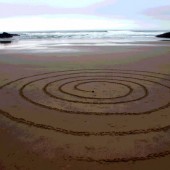
Stakeholders have become increasingly vocal about companies’ sustainability impacts, and corporations have responded by issuing sustainability reports that discuss and gauge performance metrics for a variety of social and environmental dimensions. These corporate sustainability reports are public domain and contain a wealth of longitudinal data that could be used by stakeholders, including educators and students. However, these reports appear to be vastly underutilized due to insufficient knowledge of and skills for assessing corporate sustainability information. This article presents the SPA (Sustainability Performance Assessment) System (Paun 2015), an educational tool for mentoring students in corporate sustainability performance research. The Global Reporting Initiative’s (GRI) G4 framework forms the model underlying SPA. A student learning outcomes survey reported that 96% of the respondents said the SPA System reduced sustainability report complexity through enhancing their sustainability knowledge and/or analytical skills. More specifically, student feedback indicated an increased understanding of sustainability both as a concept and from a business perspective, and the improved ability to assess and compare corporate sustainability performance based on sustainability report information and data.
Continue Reading
Abstract: Geography supports place-based inquiry for the learner, applying the old environmental adage of “think globally, act locally” to environmental problem solving. Many within and outside of the discipline of geography see it as a highly appropriate home for sustainability studies. Yet despite a history of human-environment education, place-based relevancy, and support from professional research or education organizations, studies show that geography does not always take a lead role in sustainability education. In the following, we revisit the contested histories of geography and sustainability education and show support for geography-led sustainability curriculum. The scope of this research is universities which have self-identified as leaders in campus sustainability, using the Association for the Advancement of Sustainability in Higher Education (AASHE) Sustainability Tracking, Assessment, and Rating System (STARS) participation as an indicator. To best understand the current relationship of geography and sustainability studies in higher education, this study examines the role of geography in offering “Sustainability Focused” courses as reported by AASHE STARS institutions with geography programs. The results show that although geography departments are highly utilized when present at an institution, there is still much room for improvement both within geography departments and campus-wide. We then discuss the implication of these findings, both for the discipline of geography and for students of sustainability.
Continue Reading
This paper describes a group of mountain museums set amidst the Eastern Alps and the Dolomites, considering their significance for the cultural identity, heritage education and sustainable tourism in South Tirol. The importance of the Mountain Museums is analyzed in connection to their setting and to the development of the communities in the area. The exhibits are analyzed considering their role in the construction of a regional identity and in the education towards the appreciation and preservation of the natural and cultural heritage of mountains, locally and worldwide. For the purpose of this research, the author visited the six buildings belonging to the net of the Messner Mountain Museum and she conversed with the director, Mr. Reinhold Messner, who is often credited as the most remarkable alpinist in history.
Continue Reading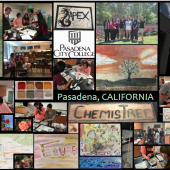
As a background for these student responses, I would first like to describe the distinguished program they are a part of at Pasadena City College (PCC). The Early Career Undergraduate Research Experience (eCURe) is a program at PCC that provides students with an undergraduate research experience in the natural or physical sciences at the onset of their scientific careers. This unique experience inspires enthusiasm for scientific research by introducing students to research projects with broader impact in terms of sustainability, energy, the environment and emerging scientific technologies. In this particular eCURe research group led by Dr. Jillian L. Blatti, students have devised methods of synthesizing sustainable paints and testing their resultant properties; they have transposed their tested methods into lesson plans to engage local high schools in scientific outreach efforts, inspiring the next generation of scientists and science educators in sustainability education. As part of this outreach effort, students collaborated with Penn State University’s Nanotechnology Applications and Career Knowledge (NACK) Network in their Remotely Accessible Instruments for Nanotechnology (RAIN) program to bring hands-on experience with advanced analytical equipment to high school students via the Internet, including a scanning electron microscope and atomic force microscope, which they used to analyze sustainable paints they crafted in the classroom. In these highly interdisciplinary and collaborative projects, PCC students are learning to integrate concepts from their science courses into a research-based setting, generating novel questions, designing experiments, analyzing the results, and communicating their science to a broad audience. This innovative community college research program has inspired our students at PCC to continue scientific research in sustainability that they have become passionate about as they transfer to four-year institutions. What follows is accounts of chemical research in sustainability in the chemistry research laboratories at Pasadena City College, the eCURe students’ ‘sense of place’, and how it impacted their views on sustainability research and education.
Continue ReadingChronicling a semester-long civic engagement project, this essay explores the efforts of a senior seminar course to collaborate with a local wilderness preservation organization. The essay reflects on the role of students in their communities, their connections to wilderness, and the challenges and rewards of civic engagement.
Continue Reading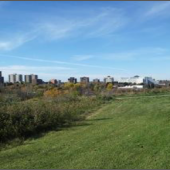
This paper provides a descriptive analysis of the experience of four doctoral students engaged in a collective project of place exploration at a midsize Canadian university. Under the methodological tradition of self-study, we contextualize concepts of place attachment and decolonization in order to investigate what it means to be interdisciplinary scholars of sustainability. We use storytelling and mobile discussion methods, alongside visual and mapping methods to disentangle our experiences and analyses of place, mobility, land, and scholarship. This reflective piece demonstrates that collaborative forms of scholarship such as this require deliberate moves toward community creation and place attachment within institutions of higher education. Through a process of collaborative investigation and writing, we have created spaces of caring academic scholarship rather than engaging in competitive and hierarchical university culture.
Continue Reading
The author explores her own personal journey toward a sense of place as she draws connections among our natural and human community, early childhood development, peace, and sustainability. The story contributes to the continuing dialogue that explores the relationship of place to humans through various viewpoints, approaches, and experiences.
Continue Reading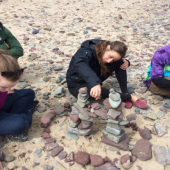
Environmental Study of Sustainable Places is a pedagogical experiment in multi-disciplinary curriculum development on several levels: 1) we integrated our multidisciplinary backgrounds in the social sciences and the humanities—political science and international relations with art and aesthetic education—to develop and co-teach these half courses; 2) student learning outcomes, course requirements, interactions and collaborations, multimedia texts (that can range from journal essays to Ted talks to articles from international press to images of environmental artists), and out of class projects, promote interdisciplinary learning; 3) the semester course confronts borders and boundaries of static college curriculum around sustainability as we examine global and local understanding of sustainability, which is a pre-requisite for a residency at the University of Wales Trinity Saint David where students crossed international borders and boundaries to conduct research of sustainable policy and enculturation in Wales, United Kingdom. Students attended interdisciplinary symposiums and work collaboratively with students representing different disciplines from the University of Wales; and 4) we delicately navigated the College’s curricula policy and bureaucracy to gain approval for a paradigm shift to use the concept of sustainability as a “pedagogical big idea” to assure that students would fulfill either of the Liberal Studies Curriculum requirements: Global Issues for Common Good or Artistic Experience.
Continue Reading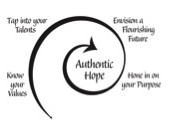
Abstract: Hope is a human process of discovery and perseverance that is based in personal values, a vision of the future, and a sense of purpose. This essay gives a brief overview on the role of phenomenological research in discovering the meaning of people’s lived experiences, such as the experience of hope. An example of phenomenological research on field ecologists’ lived experiences of climate change is provided in order to illuminate the experience of “silver linings” as the experience of hope while living in the midst of the dark cloud of climate change. An overview of a reflective curricular activity designed to cultivate hope and purpose in sustainability studies is provided.
Continue Reading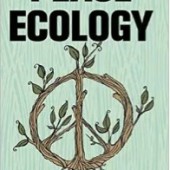
Abstract: Renowned author and professor Randall Amster embraces peace ecology as a way to engage in cooperative actions and practices that build community and foster resilience. Peace Ecology bridges the gap between social and environmental sciences, highlighting important ethical and interdisciplinary aspects of the field of peace studies and showing how these relate to both human communities and the places in which they are embedded.
Amster, R. (2015). Peace ecology. New York: Routledge.
Continue Reading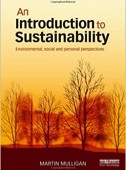
Abstract: Martin Mulligan’s An Introduction to Sustainability: Environmental, social and personal perspectives reviews the history of sustainability science, placing emphasis on the social-ecological model. This model introduces the importance of personal values and choices. He discusses topics around four themes: limits to growth, diversity, community and resilience. It is well-written, informative and novel.
Mulligan, M. (2014). An Introduction to Sustainability: Environmental, Social and Personal Perspectives. New York: Routledge. ISBN-13: 978-0415706445
Continue Reading
The theme of stewardship, or caring for God’s creation, features prominently throughout Catholic social teaching. This Care for Creation project was designed to make students become engaged science learners who want to dig deeper into solutions when they learn about the environmental impacts caused by human choices through a lens of Catholic faith. By employing a Project-Based Science strategy and incorporating many of the themes of Catholic social teaching, students learned about climate change in a year-long sustainability education experience, shared their knowledge with their school and parish, and sponsored projects to help the poor and vulnerable of their city and abroad. This project can be used as a model for incorporating sustainability content and Project-Based Science learning into a Catholic science curriculum.
Continue Reading
Drawing from a theoretical framework of Ecopsychology and Biophilia this phenomenological study explored the following research question; What is the meaning of the human-environment relationship for children? This qualitative investigation utilizes data from writing samples and follow up focus group interviews with 68 children providing a robust sample of 6-12 year olds perspectives. Qualitative data analysis software using QSR Nvivo ® 7 & 8 was used to systematically provide topic, analytic, matrix and categorical coding for the 265 pages of textual data. Results indicate that children have a love of nature; a positive deep-seated intellectual and emotional appreciation for nature based on “experiences through” and “affection for” nature. When children expressed their relationship with nature they often did so from a place of positive emotional friendship or unconditional love. This study provides a visual representative diagram based on quantifiable qualitative data illustrating the bonds between children and nature. The biophilic results show that children are “falling in love” with nature and this representation can provide a glimpse into the possibility of “standing in love” with nature as people grow into adulthood.
Continue Reading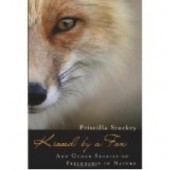
Abstract: In Kissed by a Fox: And Other Stories of Friendship in Nature, Priscilla Stuckey, Ph.D. presents a collection of stories as an integrated whole. The purpose of this book review is to offer this work of creative non-fiction as an illuminating example of how love and relationships are essential ingredients for sustainability. Kissed by a Fox is fundamentally about relationships between humans and other-than-human beings. Love for the natural world and one’s self are consistently described throughout the book as necessary for taking in and giving out what will sustain us and the earth. Stuckey delivers this message through narrating her experiences with “friendships in nature” and how these relationships transformed her life.
Continue Reading
This opinion/editorial presents the belief that love is present in all human lives as an emotional experience and may be present in all human lives as an intellectual idea as well. It considers possible actualities that lie behind some common thoughts (clichés) about love. The author presents the idea that even though love is central to our lives, the word love, if not the concept of love, is avoided in academic discourse. The author explores some of the scholarly, theoretical, and philosophical writing about love, noting that it is often named something other than love (compassion, well-being, altruism, etc.). The question and invitation are presented to consider what might be possible if love were intentionally and specifically identified as a methodology, pedagogical practice, and value in leadership, activism, and education.
Continue Reading
Abstract: This article describes the connection between love and one’s “home”. It is this love and a strong sense of place or connection to one’s home that ushers in the need for sustainability
Continue ReadingAbstract: This essay offers reflection on the question of what love has to do with sustainability and environmental awareness. Examining Terry Tempest Williams’ Desert Quartet, Aldo Leopold’s A Sand County Almanac and Pattiann Rogers’ Firekeeper: New and Selected Poems, the article explores how and when environmental consciousness arises. The three selected authors offer insight on the roles played by environmental trauma, close and empathetic identification with animals and place, the power of close observation, and the constitutive power of praise. Finally, an etymological reading of the word, “sustain,” suggests new definitions of what it means to have and to hold, to make a pledge to environmental awareness. The essay concludes that the vocabulary and emotional commitment prompted in acts of sustainability partakes in the language of love.
Continue Reading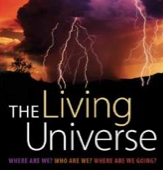
In The Living Universe: Where are We, Who are We, and Where are We Going, Duane Elgin presents a powerfully compelling argument that the most fundamental challenge facing humanity during this time of crisis is to visualize a future of great opportunity and that the foundational story guiding the reality people create on Earth is whether the universe is alive and to be loved and nurtured or dead and to be feared and consumed. This article provides a review of this powerful book with an eye to the connection between love and sustainability.
Continue Reading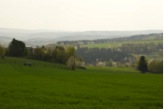
Sustainable being is the concept of living a lifestyle that is grounded in physical, mental, emotional and spiritual wellbeing. In this article the author shares how her experiences and learning during a sabbatical in India and Germany helped her make the connection between sustainability education, change initiatives, whole health and heartful living. An overview of sustainable being is provided in the context of five principles of living shared by a vedic-eco community in India who is involved in global sustainability efforts. These principles are related to those living in western society with an emphasis placed on the role of sustainable being for educators involved with change initiatives.
Continue Reading